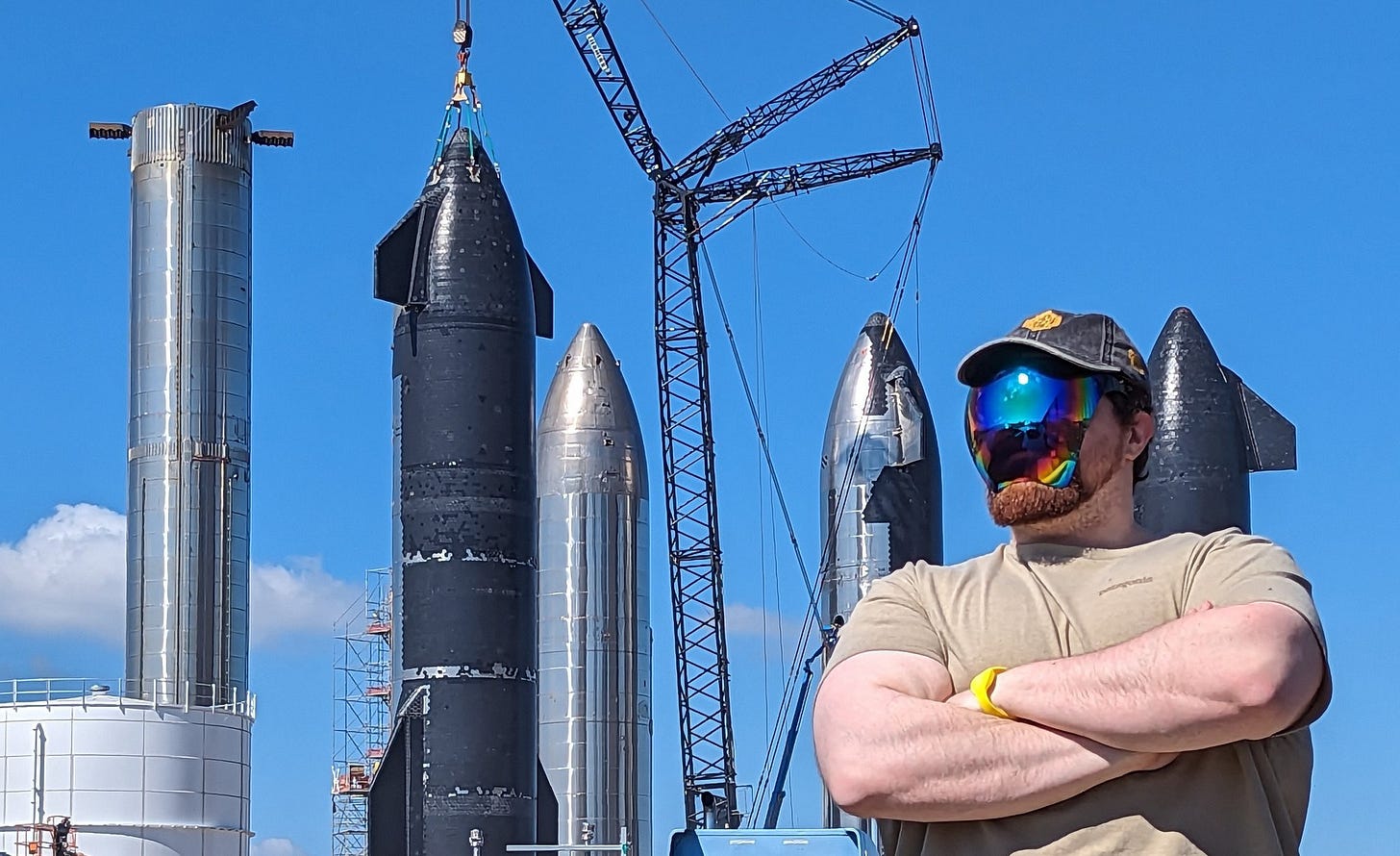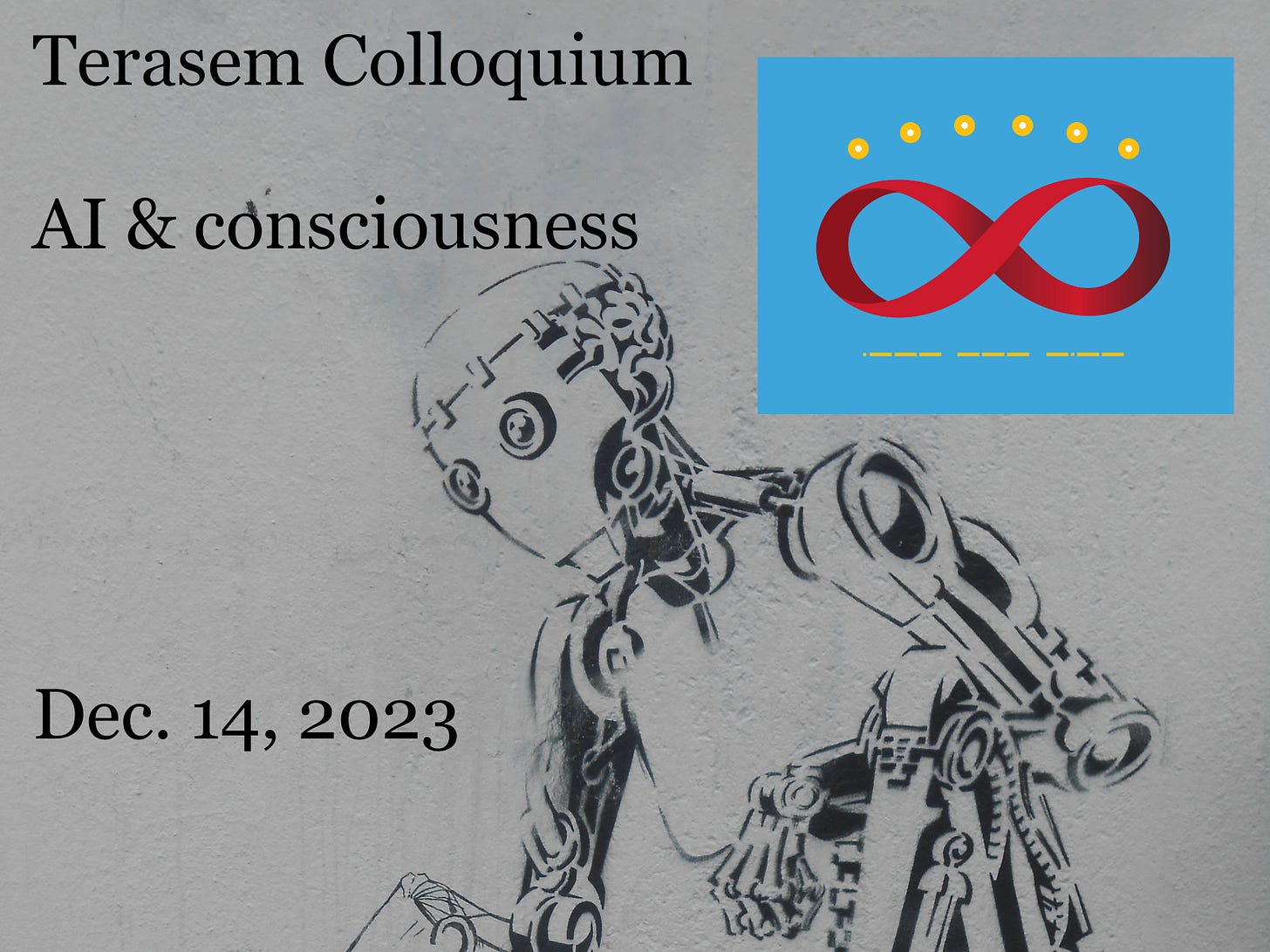Effective accelerationism (e/acc) is good
Thoughts on effective accelerationism (e/acc), extropy, futurism, cosmism.
Greetings to all readers and subscribers, and special greetings to the paid subscribers!
Please scroll down for the main topic of this newsletter. But first:
NEXT WEEK at the Terasem Colloquium on December 14, 2023 (10am-1pm ET via Zoom), stellar speakers will explore recent AI developments (ChatGPT & all that), machine consciousness, and the nature of consciousness. You are invited! Please note that a related issue of Terasem’s Journal of Personal Cyberconsciousness (Vol. 11, Issue 1 - 2023) will be published in December.
Speakers: Ben Goertzel, Stefano Vaj, Mika Johnson, Blake Lemoine, Bill Bainbridge, Vitaly Vanchurin. You are invited to come, listen, and ask questions.
Zoom access:
Meeting ID: 893 9406 3912
Passcode: 896236
or just CLICK HERE.
More and more drama in the Artificial Intelligence (AI) world! After the openAI drama I’ve been following the doxxing of Guillaume Verdon aka Beff Jezos, the founder of the movement called effective accelerationism (e/acc) and the company Extropic AI.
Here’s the first video appearance of Jezos with Verdon’s face after doxxing.
I more or less agree with all Verdon says in the video. He has impressive scientific credentials, and this picture that he posted to X tells me that he has the brain and the heart in the right place.

My favorite quote from the video: we need “fuck you optimism” (!!!). Beff/Gill says that e/acc is not a monolithic ideology but a framework that can be forked. I like this. Vitalik Buterin has proposed a fork that he calls d/acc. I’ll be watching for other forks.
In the internet stone age of the 1990s my mind went on fire when I encountered extropy, a wildly optimistic philosophy of human empowerment assisted by wildly futuristic sci/tech.
In this recent FT podcast (transcript), Anders Sandberg talks about extropy. The extropian mailing list “became this confluence of a lot of bright, bickering types discussing the long-run future,” he says. “And those conversations have actually made a lasting impression on a lot of the technology we have today.”
I became a card-carrying extropian and I’ve called myself an extropian ever since.
Today, e/acc gives me similar vibes.
I also call myself a futurist. Not only one who thinks about the future, but also a follower of the Italian futurists: 1, 2. This is why I put a picture of an old train in this post: the Italian futurists in the early 20th century loved trains as powerful symbols of accelerating progress. I also call myself a cosmist.
Extropy, futurism, and cosmism are strongly related in spirit, and I guess e/acc is a new instance of that common spirit. Many people I like are adding e/acc to their X profiles.
Should I call myself an e/acc? Perhaps I will. My favorite mental state is one of serenity and calm contemplation of awesome futures (call it slow/acc?), but I agree that we should start expanding into space and developing AI & other futurist technologies without wasting too much time and without too much regulation.
I've been trying to find out if there are reasons I should NOT call myself an e/acc. I’ve found none so far. At this moment e/acc is mostly about AI, but it is really about all the things we used to discuss in the extropian mailing lists, including biotech, nanotech, neurotech, mind uploading, crypto, space expansion and all that. I'm a radical libertarian at heart, so I'm OK with the radically libertarian slant of e/acc. I’m more moderate in practice for pragmatic realpolitik, but I think the tech world and the world at large need a strong dose of healthy fuck-you libertarianism.
The e/acc newsletter (Substack) collects some foundational e/acc writings. To me, the most interesting is “Notes on e/acc principles and tenets.” The post is “a somewhat fundamental physics-based first-principles explanation of some of the concepts underlying the movement, and an exploration of why e/acc is so fundamentally important.”
Some excerpts that I find especially interesting:
“Life emerged from an out-of-equilibrium thermodynamic process known as dissipative adaptation (see work by Jeremy England): matter reconfigures itself such as to extract energy and utility from its environment such as to serve towards the preservation and replication of its unique phase of matter…
Effective accelerationism aims to follow the “will of the universe”: leaning into the thermodynamic bias towards futures with greater and smarter civilizations that are more effective at finding/extracting free energy from the universe and converting it to utility at grander and grander scales…
e/acc has no particular allegiance to the biological substrate for intelligence and life, in contrast to transhumanism. Parts of e/acc (e.g. Beff) consider ourselves post-humanists; in order to spread to the stars, the light of consciousness/intelligence will have to be transduced to non-biological substrates…”
I mostly agree with the second and third points. Yes, we should align with the will of the universe, and yes, eventually we’ll have to move to new physical substrates in order to expand into the universe at large and become cosmic engineers (but we still need human space expansion into the solar system in this century to keep the spirit alive and strong). Concerning the first point, I don’t disagree but I think we’ll need new physics, perhaps very different from today’s physics, to understand how life and consciousness emerge in the physical universe.
I will avidly follow the development of the philosophical and metafysikcal foundations of e/acc.
A note to the original version of “Notes on e/acc principles and tenets” mentions Nick Land’s “original founding text for accelerationism” (also published in Land’s book “Fanged Noumena: Collected Writings 1987–2007”).
Verdon’s company, called Extropic AI, has received $14.1M funding. Excerpts from the announcement:
“Extropic is building the ultimate substrate for generative AI in the physical world…
we are building a computing paradigm which harnesses the power of out-of-equilibrium thermodynamics to fundamentally merge generative AI with the physics of the world…
Our goal is simple: achieve the ultimate embedding of generative AI into physical processes of the world…”
This sounds very intriguing. Generative AIs embedded in the mathematical game environment of chess/Go and in the textual environment of human language have developed an impressive mastery of their environment. Perhaps generative AIs embedded in the machinery of the physical world will develop new physics and new technologies that we haven’t thought of?




I really enjoyed reading this past
Giulio is a clear and coherent thinker
One possible reason not to call yourself by this label would be if you are not a utilitarian. I favor virtue ethics and strongly dislike utilitarianism so I would not use the label even though I am well aligned with most of the goals and approaches.